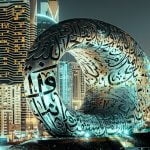As an avid learner of languages, I have always been fascinated by the Arabic language. It is a gateway to a rich history, filled with captivating stories and ancient civilizations. Through Arabic language lessons, we can explore the origins and historical significance of this incredible language.
Arabic is not just any language; it has unique features and structures that make it both challenging and beautiful to learn. By delving into its grammar and vocabulary, we gain a deeper understanding of its intricacies.
But learning Arabic is not just about mastering the rules; it opens doors to a world of cultural heritage and literature. From classical poetry to modern novels, the Arabic language offers a treasure trove of literary gems waiting to be discovered.
Moreover, embarking on a journey to Arabic-speaking countries allows us to immerse ourselves in the language like never before. Interacting with native speakers provides an opportunity to practice our skills in real-life situations while experiencing the vibrant cultures that shaped this magnificent language.
Join me on this captivating journey through Arabic language lessons as we unlock the secrets of its rich history together.
Key Takeaways
- Learning Arabic opens the door to a rich history and ancient civilizations.
- Arabic offers a treasure trove of literary gems and influential works.
- Arabic has a unique script, vocabulary, and grammar that make it challenging and beautiful to learn.
- Immersing in Arabic-speaking countries allows for an unforgettable adventure and a deeper understanding of their rich histories and cultures.
Explore the Origins and Historical Significance of Arabic Language
As I delve into the origins and historical significance of the Arabic language, I uncover a captivating window into a rich and diverse cultural heritage. It is truly fascinating to learn that Arabic, with its roots in the Arabian Peninsula, has a history dating back thousands of years. From the ancient civilizations of Mesopotamia to the Islamic Golden Age, this language has played a pivotal role in shaping human civilization. Its influence extends beyond linguistic boundaries, as it has been instrumental in spreading knowledge and ideas across continents.
Furthermore, exploring the historical development of Arabic reveals its unique features and structure. The intricate script with its beautiful calligraphy, coupled with an extensive vocabulary and complex grammar rules, showcases the depth and complexity of this language. Understanding these aspects not only enhances our appreciation for Arabic literature but also allows us to comprehend its impact on other languages.
In discovering the unique features and structure of Arabic language lies a deeper understanding of its cultural significance and global influence.
Discover the Unique Features and Structure of Arabic Language
Explore the distinct characteristics and organization of Arabic, immersing yourself in a world of linguistic intricacies and cultural significance. The Arabic language is known for its unique features, such as its complex consonantal root system and its rich morphology. It is a Semitic language that uses a non-linear writing system, with letters changing their shape depending on their position in the word. Additionally, Arabic has different forms of verbs to indicate tense, mood, and aspect. To further understand the structure of Arabic, take a look at the table below:
| Feature | Description |
|---|---|
| Consonantal roots | Basic units from which words are formed |
| Morphology | Study of how words are formed and structured |
| Non-linear writing | Letters change shape based on their position in the word |
| Verb forms | Indicate tense, mood, and aspect |
Now that we have explored the unique features and structure of Arabic, let’s delve into learning the basics of Arabic grammar and vocabulary.
Learn the Basics of Arabic Grammar and Vocabulary
Discovering the fundamentals of Arabic grammar and vocabulary will ignite a sense of curiosity and empower me to embrace a new linguistic journey. Arabic grammar follows its own unique rules, with a strong emphasis on gender, verb tenses, and sentence structure. Understanding these basic principles is essential for constructing meaningful sentences. In addition, learning Arabic vocabulary opens up doors to communication and comprehension in the language. Building a solid foundation of words will enable me to express myself more confidently and engage in conversations with native speakers. As I dive into the rich cultural heritage and literature of the Arabic language, I will uncover fascinating stories, poems, and historical texts that have shaped this ancient civilization. Exploring the depths of Arabic language will reveal a world filled with beauty and wisdom.
Dive into the Rich Cultural Heritage and Literature of Arabic Language
Immerse yourself in the vibrant tapestry of stories and masterpieces that have shaped an ancient civilization. Explore the rich cultural heritage and literature of the Arabic language, and you will uncover a world of beauty, wisdom, and inspiration. Here are just a few glimpses into this captivating realm:
- Discover the timeless tales of One Thousand and One Nights, where Scheherazade weaves enchanting stories night after night.
- Experience the profound poetry of renowned poets like Rumi and Ibn Arabi, whose words touch hearts across centuries.
- Delve into classical works such as Al-Mutanabbi’s epic poems or Averroes’ philosophical treatises.
- Marvel at the intricate calligraphy adorning mosques and manuscripts, a testament to the artistry that lies within Arabic script.
- Witness how Arabic literature has influenced global literary traditions, from Dante’s Divine Comedy to Marquez’s One Hundred Years of Solitude.
Embark on a journey to Arabic-speaking countries and immerse yourself in this mesmerizing language – it is an adventure unlike any other.
Embark on a Journey to Arabic-Speaking Countries and Immerse Yourself in the Language
Embark on a breathtaking journey through the vibrant landscapes and bustling markets of Arabic-speaking countries, where the melodic cadence of native tongues will serenade your senses and transport you to a world filled with culture and tradition. As you explore these enchanting lands, you’ll have the opportunity to immerse yourself in the Arabic language, embracing its beauty and intricacies firsthand. Picture yourself strolling through the winding streets of Marrakech, Morocco, surrounded by colorful spices and mesmerizing aromas. Or imagine standing in awe at the majestic pyramids of Giza, Egypt, while hearing locals converse passionately in their mother tongue. To help you visualize this incredible experience, take a look at this table:
| Country | Landscapes |
|---|---|
| Morocco | Desert dunes |
| Egypt | Nile River |
| Jordan | Petra’s ancient ruins |
| UAE | Burj Khalifa |
| Lebanon | Cedar forests |
Immersing yourself in Arabic-speaking countries is not just about learning a language; it’s about immersing yourself in rich histories, diverse cultures, and warm hospitality. So pack your bags and get ready for an unforgettable adventure!
Frequently Asked Questions
What are the different dialects of Arabic spoken in Arabic-speaking countries?
How long does it take to become fluent in Arabic?
Are there any online resources available for learning Arabic?
What are some common challenges faced by non-native speakers when learning Arabic?
Is it necessary to learn the Arabic script in order to speak and understand the language?
Conclusion
In conclusion, learning Arabic language has opened up a whole new world for me. I have gained insights into its rich history, unique features, and structure. By delving into its grammar and vocabulary, I have acquired a solid foundation in this beautiful language. Moreover, exploring its cultural heritage and literature has deepened my understanding of the Arab world. Lastly, immersing myself in Arabic-speaking countries has allowed me to practice and appreciate the language even more. Learning Arabic has truly been an enriching journey that I highly recommend to anyone interested in expanding their horizons.






